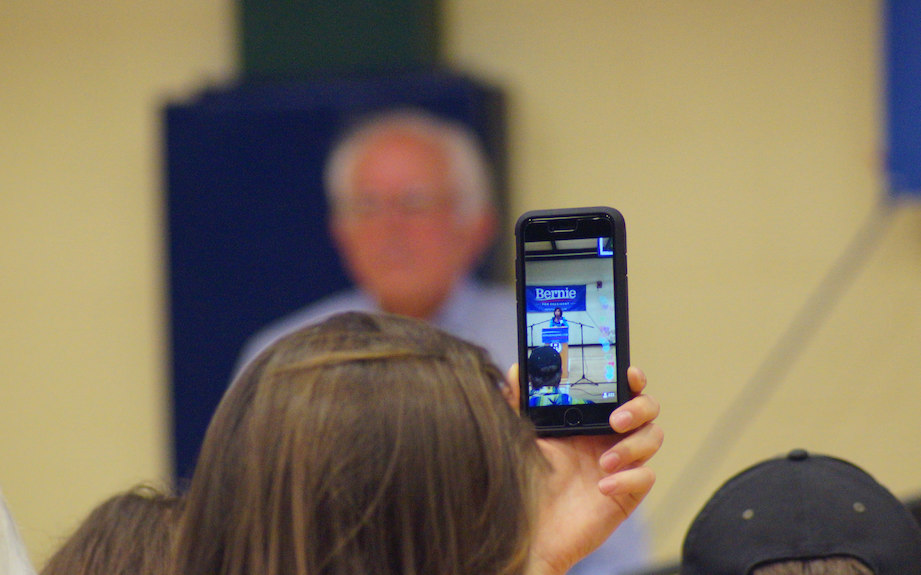Like this article? rabble is reader-supported journalism. Chip in to keep stories like these coming.
The time is ripe, it seems to me, for assessing the deep change brought by the Internet era. It’s ripe because, now, there’s a generation grown up entirely within that era. Those of us from before the dawn of the Internet, could try to assess it but our roots were outside it and our view was skewed. For early millennials, born along with the Internet, the outlines weren’t as clear as they now are; they were transitional. But literal millennials, born circa 2000, are true creatures of the Internet age; their experience belongs entirely to it.
Early attempts to categorize the change tended toward wild enthusiasm (“the most transforming technological event since the capture of fire,” wrote John Perry Barlow in 1995) or despair (“Is Google making us stupid?”). A millennial I know says it was utopianism versus dystopianism.
The actual nature of the shift from mass media like newspapers or TV to the Internet was often defined as a shift from one-to-many contact (since a few writers or producers sent out their messages to a passive mass of consumers) over to many-to-many communication via social media, where everyone can produce content. That’s what led those like Barlow to hail the democratic potential of the Internet and it sounded smart at the time. In retrospect, I’d say their approach concealed a lingering mass media bias toward focusing on content versus the way individuals’ lives are affected by the Internet experience.
Here’s what I mean. Those of us from the mass media era felt TV and its ilk were pervasive. But actually those media were confined to the living room or the bar, or when we were reading. Even phones were tethered to the wall and others competed for their use. Otherwise — when we were walking from place to place, for instance — we were on our own, alone. We had lots of me-time. True netizens, on the other hand, are never unconnected. Even as they sleep, their phones glow by their beds and they check them each time they awake during the night. They have almost no sheer me-time. Early critics said they were addicted to their cellphones. But really it was a sea change in what’s normal.
We have to beware the menace of old-fartism lurking here. Some of us tend to romanticize me-time as noble solitude where we thought deep thoughts or communed with the universe. In reality most lonely walks to work or the store were spent obsessing pointlessly about irresoluble personal issues or tight schedules. Conversely, constant connectivity can lead to fuller, more social lives; being in touch with friends at all hours can develop empathy. None of these effects are preset; but they’re two different ways of experiencing life and the world. Overall, this is a way of viewing the Internet’s effects existentially or anthropologically, rather than technologically and, often, moralistically.
What are the wider implications? It’s hard to say. In the mass media era, the dominant social institution was the nuclear family: a fairly recent, primitive, often stifling institution (IMHO). Emotionally it’s almost indescribably intense. It’s highly resistant to change in basic patterns; it’s as if it exists outside time. Friendships were limited to those you could meet, in nearby physical space, who might move away. With the Internet, the potential of friendship widened vastly. Relationships could expand in the greater time available and also deepen, perhaps counterbalancing the inertia of the family stuff. This in turn could offset the glacial sense of social or historical change that reflected family dynamics.
Might this explain anything? Well, it’s hard not to be struck by the accelerated pace of recent change. Advances in gay or gender rights have come far faster than those in voting rights, or civil or women’s rights, ever did. This now extends to less “personal” issues like a minimum wage or Basic Annual Income, which have leapt onto the agenda unexpectedly. Where did the new willingness to run deficits come from? It was unspeakable just a few years ago.
I’m especially intrigued by Bernie Sanders’ bond with millennials, and their powerful emotional stake in his campaign. Is there some kind of parental substitute here: an elder who evokes their own sense that big changes (“the revolution”) needn’t be daunting, hopeless and inadmissible in public discourse — because we now connect to the world and each other in new ways?
This column was first published in the Toronto Star.
Photo: Marc Nozell/flickr
Like this article? rabble is reader-supported journalism. Chip in to keep stories like these coming.




